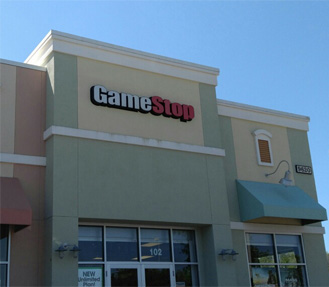
photo by Thursday Review
Gamestop Hits Sales Stop
| published March 28, 2017 |
By Thursday Review staff writers
Electronics and entertainment retailer GameStop posted its worst financial results in years, releasing its fourth quarter 2016 earnings report and announcing that it had been hit with a 13.6% decline in total sales in the period October to December—normally the retailer’s best period. This means that Game Stop performed worse even than the Wall Street predictions of a 12% slide during the holiday season.
GameStop saw a decline in both new and used software and hardware. The only segment of Game Stop’s retail sales to see a substantial rise was in mobile apps and smartphone technology, which saw a robust increase of 44% during the fourth quarter. New hardware sales fell a shocking 29%--a stunning decline for the holiday stretch.
The Grapevine, Texas retailer announced this week that it plans to shutter between 2% and 3% of its storefronts—or approximately 200 stores in total. It did not say whether the majority of those stores to be closed were in the U.S. or abroad.
The news hits hard for many observers who saw GameStop as once invulnerable to market shifts in the digital age, and especially in the final years and months of quasi-rivals Circuit City and Radio Shack. Gamestop specializes in, among other things, Xbox, PlayStation, Nintendo, and other video game consoles and software, along with hundreds of other entertainment, electronic and digital-age products. Gamestop also sells products for wireless users, and acts as a point-of-sale for mobile services. One of its most durable aspects was the availability of pre-owned video games and software.
But in the age of Amazon and other giant online retailers, even Gamestop has seen its walk-in retail fortunes fall as consumer, many of them younger, no longer find it necessary to eyeball a product in person or handle the package gamer-y-gamer, as it were.
On Wall Street, Game Stop stock lost some 16% as investors worried about the possibility that the retail chain may have to begin downsizing more rapidly to remain viable—a likely scenario if the company cannot find the magic formula for jumpstarting its once-hearty business model.
Company spokespersons—while acknowledging the retailers overall problems in competing effectively with Amazon—also pointed logically to several related issues, including the fact that neither Sony nor Microsoft have introduced new versions or updates to their enormously popular Playstation and Xbox products, respectively. This left traditional Gamestop shoppers with fewer reasons to visit one of the company’s 6,300 stores, many of those locations placed inside malls or shopping centers. The lack of new products preceding the Christmas sales period merely intensified the severity of the pain for Gamestop.
The company indicates it will only close those locations which have greatly underperformed during 2015 and 2016.
Gamestop’s slide comes amidst a growing shift in buying habits by Americans as Amazon, along with dozens of other online sellers, attract millions of shoppers to web-based retail. The sea change has spurred some retailers like Wal-Mart and Costco into rapid business realignments, and has forced iconic chains like J.C. Penney, Sears, Kmart and Macy’s to each close hundreds of stores and layoff thousands of employees. Staples and Kohl’s are also shuttering stores nationwide in an attempt to stave off collapse.
Related Thursday Review articles:
J.C. Penney to Close 140 Stores in 2017; Thursday Review staff; Thursday Review; February 25, 2017.
Weak Holiday Numbers Force Layoffs for Macy's, Sears, Kmart; Thursday Review staff; Thursday Review; January 6, 2017.
